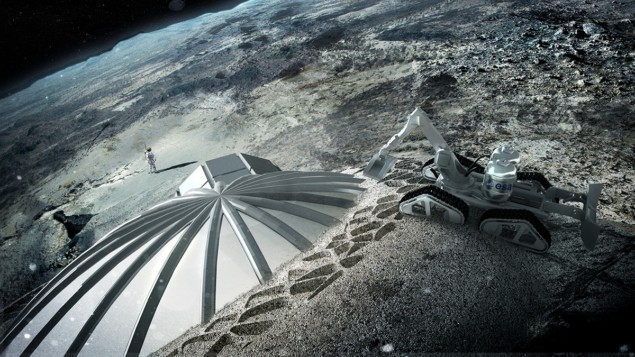
Shortly before the turn of the millennium, a NASA spacecraft called Lunar Prospector plunged into a crater near the Moon’s south pole. For its controllers, the crash was the end of a successful mission to find water ice on the lunar surface. In the view of science writer Andrew May, though, it also heralded the dawn of a new era in space exploration. We are now in a world in which commercial concerns (like finding valuable resources) outweigh purely scientific or political interests, while tight cost controls (at $63m, Lunar Prospector was a snip by NASA standards) have gradually replaced the bloated fixed-fee contracts of the Apollo era.
For readers with an interest in how this new era came into being, and how it might evolve in the future, May’s book The Space Business: From Hotels in Orbit to Mining the Moon – How Private Enterprise is Transforming Space makes an entertaining and drily humorous guide. While it opens with the headline-grabbing space-tourism activities of SpaceX, Blue Origin and Virgin Galactic (the brainchildren/vanity projects of multibillionaires Elon Musk, Jeff Bezos and Richard Branson, respectively), later chapters have a welcome focus on less-heralded firms.
Examples include the New Zealand launch firm Rocket Lab, which uses an electric rather than a mechanical pump to compress its fuel. Then there is the UK-based firm Reaction Engines, which is developing an engine that could power the first true “single-stage-to-orbit” vehicle (if it ever gets built).
While May is somewhat too enthusiastic about space billionaires for my taste, describing them unironically as “people who have a genuine concern for humanity’s long-term future” (as opposed to, say, “egomaniacs on a giant tax-avoiding power trip”), he is right to say that they are not thinking small. It will be fascinating to see where the trend that began with Lunar Prospector leads in the future.
- 2021 Icon Books 176pp £8.99/$16.95pb
